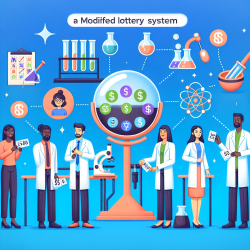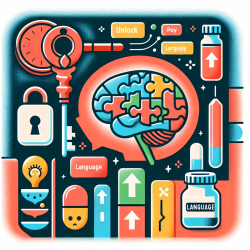Unlocking the Potential of Data-Driven Speech Therapy
In the ever-evolving field of speech-language pathology, staying updated with the latest research and integrating data-driven decisions into your practice is crucial. One recent study, "Search for heavy long-lived multi-charged particles in pp collisions at s=8 TeV using the ATLAS detector," provides intriguing insights that can be translated into actionable strategies for improving outcomes in speech therapy for children.
Why Data-Driven Decisions Matter
Data-driven decisions are essential in speech therapy as they provide a factual basis for interventions, ensuring that the chosen methods are backed by evidence and have a higher likelihood of success. By leveraging research findings, therapists can tailor their approaches to meet the specific needs of each child, thereby enhancing the effectiveness of therapy sessions.
Key Takeaways from the Research
The study conducted using the ATLAS detector at the LHC, although primarily focused on particle physics, offers valuable lessons on the importance of precision, thoroughness, and the application of systematic methods. Here are some key takeaways that can be applied to speech therapy:
- Precision and Accuracy: Just as the ATLAS detector requires precise measurements to detect particles, speech therapists need to conduct precise assessments to accurately identify the speech and language needs of children.
- Systematic Approach: The research highlights the importance of a systematic approach in experiments. Similarly, speech therapists should follow a structured plan when implementing therapy, ensuring that each step is methodically executed.
- Continuous Monitoring: The ATLAS detector continuously monitors particle collisions. In speech therapy, continuous monitoring and assessment of a child's progress are vital to adjust interventions as needed.
Implementing Research Findings in Speech Therapy
Here are practical ways to implement these insights into your speech therapy practice:
- Conduct Detailed Assessments: Use comprehensive assessment tools to gather detailed information about each child's speech and language abilities. This data will guide your intervention strategies.
- Develop a Structured Therapy Plan: Create a structured therapy plan with clear goals and objectives. Ensure that each session is planned in detail, focusing on specific areas of need.
- Monitor Progress Regularly: Implement regular progress monitoring to evaluate the effectiveness of your interventions. Use this data to make informed adjustments to your therapy plan.
Encouraging Further Research
While implementing current research is crucial, encouraging further research in the field of speech-language pathology is equally important. By contributing to ongoing research efforts, practitioners can help advance the field and discover new, effective strategies for improving speech therapy outcomes for children.
To read the original research paper, please follow this link: Search for heavy long-lived multi-charged particles in pp collisions at s=8 TeV using the ATLAS detector.
Conclusion
Integrating data-driven decisions and research findings into your speech therapy practice can significantly enhance the outcomes for children. By conducting detailed assessments, developing structured therapy plans, and continuously monitoring progress, therapists can ensure that their interventions are effective and tailored to each child's needs. Furthermore, contributing to and encouraging further research will help advance the field, ultimately benefiting more children in need of speech therapy.










